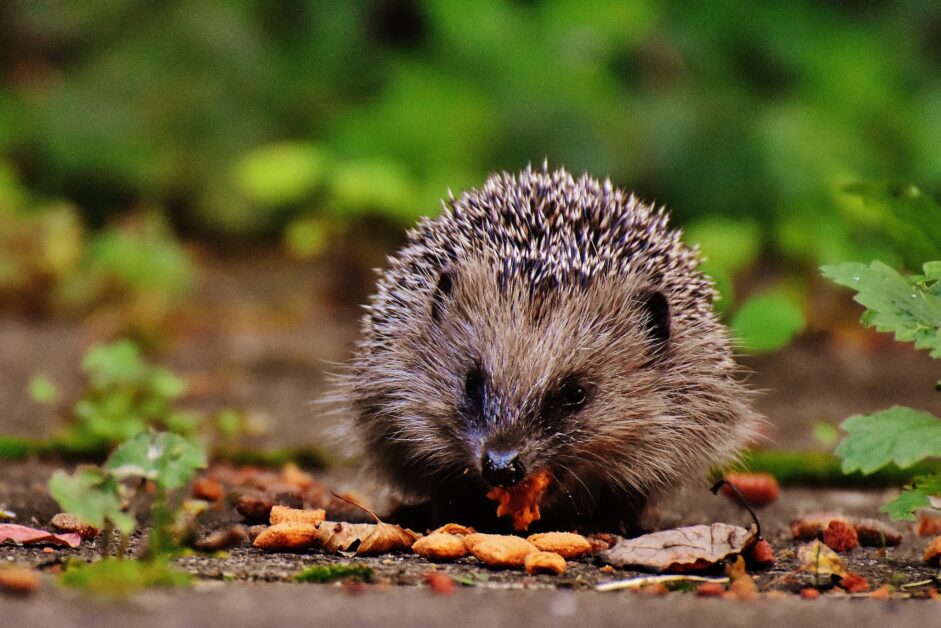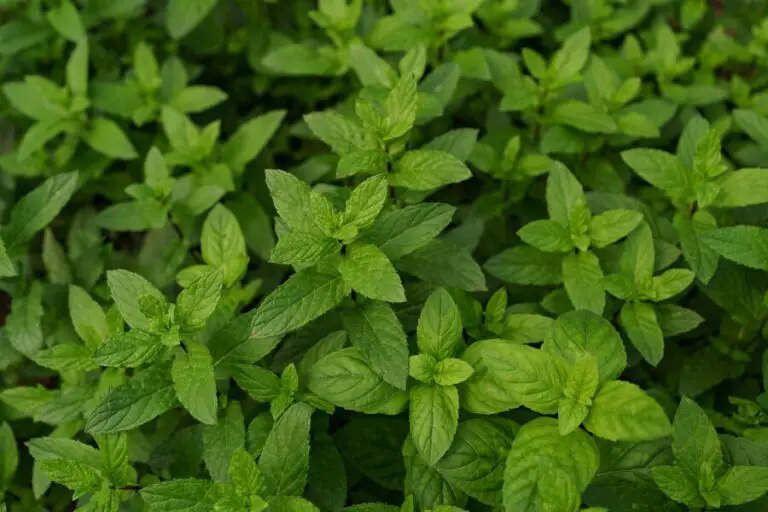Rodent Control in the Garden: How to Do It Safely and Humanely
Table of Contents
Understanding the Impact of Rodents in Your Garden
Rodents can have a significant impact on your garden, causing damage to plants, destroying fruits and vegetables, and compromising the overall health of your gardening space. These small creatures, including mice, rats, and squirrels, have a voracious appetite for fresh greens and can quickly decimate your carefully cultivated crops. While they may appear harmless, their presence can lead to a cascade of problems that can be detrimental to the success of your garden.
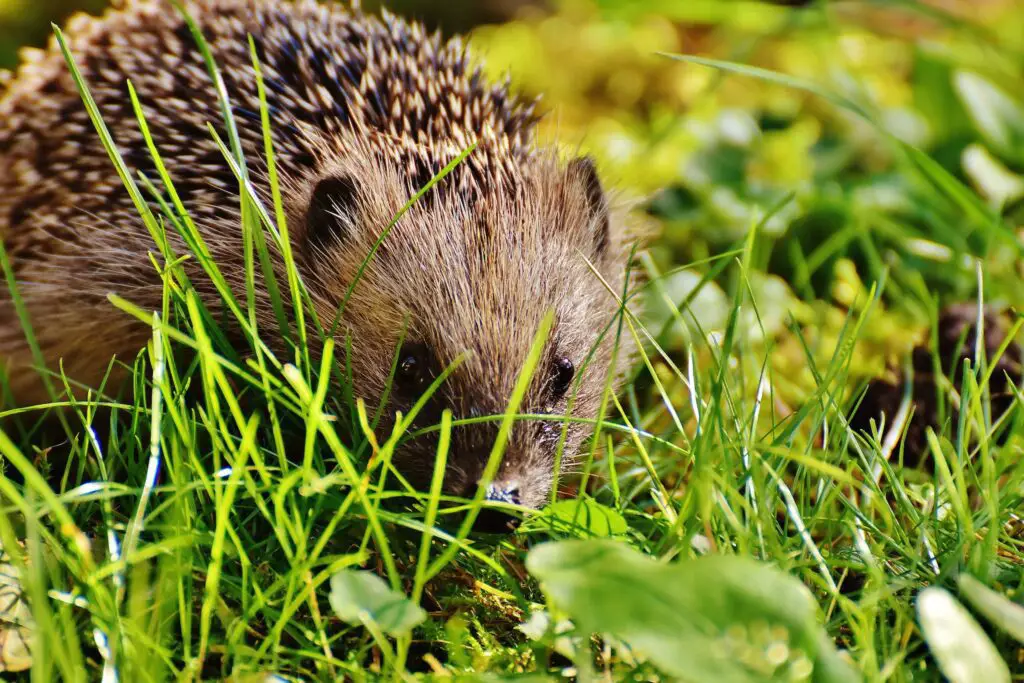
One of the main concerns when it comes to rodents in the garden is the destruction they cause to plants. Rodents are known to chew on stems, leaves, and roots, often leaving behind a trail of devastation. This not only weakens the plants but can also introduce diseases and pathogens that can spread to other vegetation. Additionally, their burrowing habits can disrupt the soil structure, affecting water drainage and nutrient distribution. These combined effects can lead to stunted growth, low yields, and an overall decline in the health of your garden. As such, understanding the impact of rodents on your garden is essential for effective pest management and ensuring the success of your gardening endeavors.
Identifying Common Garden Rodents and Their Behavior
Rodents can cause significant damage to your garden, so it’s crucial to be able to identify them and understand their behavior. One common garden rodent is the squirrel. Squirrels are known for their playful nature and their love for digging, which can uproot your plants and disturb the soil structure. They are also notorious for their habit of nibbling on fruits, vegetables, and flower bulbs, leaving behind a trail of destruction. Additionally, squirrels are skilled climbers and can easily access bird feeders or birdhouses, stealing food and scaring away your feathered friends.
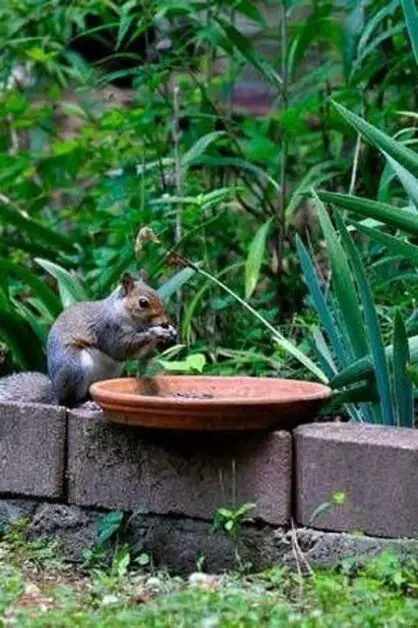
Another common garden pest is the rat. Rats are highly adaptable and can thrive in various environments, including gardens. These rodents are nocturnal, meaning they are most active at night, making it challenging to spot them during the day. Rats are notorious for their ability to burrow, creating extensive tunnels underground. This behavior can cause damage to the root systems of your plants, leading to stunted growth and poor yields. Furthermore, rats are opportunistic feeders and will consume a wide range of food, including fruits, vegetables, seeds, and even small insects.
Assessing the Damage Caused by Rodents in Your Garden
Rodents can cause significant damage to gardens, making it crucial to assess the extent of the harm they can inflict. From nibbling on leaves and stems to gnawing through roots and fruits, these pests leave no plant untouched. The damage caused by rodents can be categorized into three main types: physical, economic, and ecological.
Physically, rodents can create unsightly and disfigured foliage, diminishing the visual appeal of your garden. They can also compromise the structural integrity of plants by burrowing into the soil, causing root damage that can lead to plant death. Additionally, rodents are known to create tunnels and runways, further disrupting the garden’s overall aesthetic.
Economically, the damage inflicted by rodents can be costly. Crop yields may decline significantly, affecting the harvest and ultimately impacting food production. This loss can have financial consequences for gardeners and farmers alike. In addition, the need to invest in rodent control measures can further strain the budget, especially if repeated infestations occur.
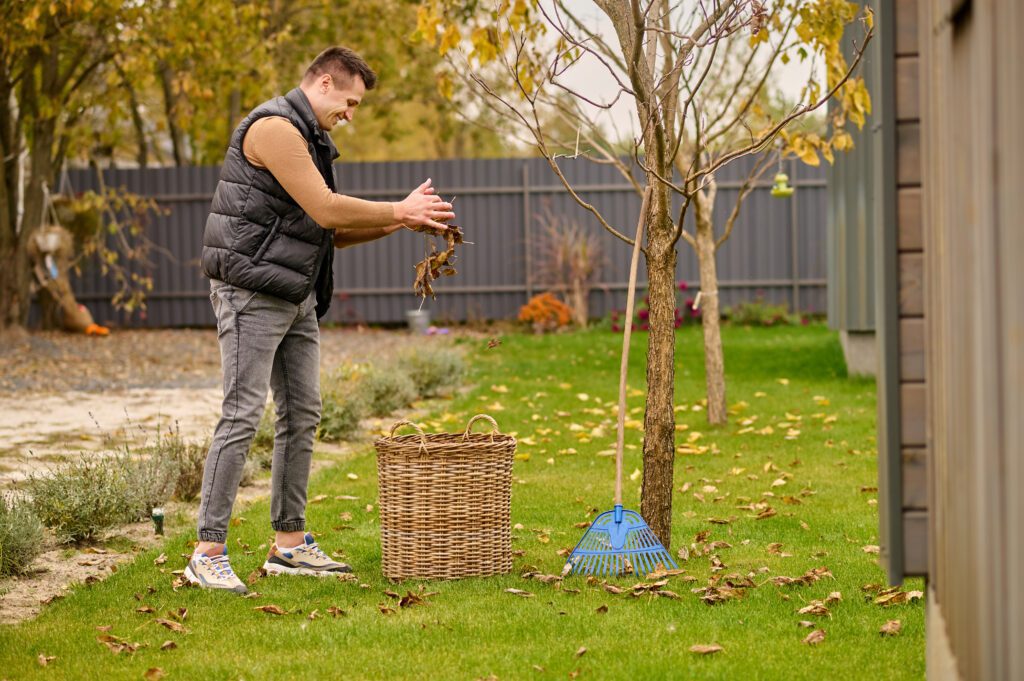
Ecologically, rodents can disrupt the delicate balance of the garden ecosystem. They may devour seeds, limiting the regeneration of plants and hindering their growth. The depletion of plant species can subsequently affect other organisms that rely on them, such as beneficial insects and birds. This disruption can cause a ripple effect throughout the entire garden, leading to a decline in biodiversity.
Assessing the damage caused by rodents in your garden is crucial for understanding the extent of the problem. By comprehensively evaluating the physical, economic, and ecological impacts, gardeners can determine the appropriate control methods to implement, ensuring the health and preservation of their beloved green spaces.
Exploring the Dangers of Using Chemical Rodenticides
Chemical rodenticides have long been used as a quick and convenient solution to control rodent populations in gardens. While these products may seem effective on the surface, it’s essential to explore the potential dangers they pose to the environment, other wildlife, and even human health.
One of the significant concerns regarding chemical rodenticides is their impact on non-target species. Studies have shown that the toxic substances present in these products can unintentionally harm beneficial animals such as birds, reptiles, and small mammals. The indiscriminate use of rodenticides can disrupt the delicate balance of ecosystems, leading to a decline in biodiversity.
Furthermore, the residues left by chemical rodenticides can contaminate soil, water sources, and food crops. These chemicals can persist for extended periods, posing a risk to other organisms in the environment. Additionally, there have been reports of secondary poisoning, where predators or scavengers that consume rodent carcasses containing the toxic substances suffer adverse effects or even death.
Gardeners must consider the potential long-term consequences before resorting to chemical rodenticides. Exploring alternative, natural, and environmentally friendly methods of rodent control can help ensure the well-being of the ecosystem and safeguard the health of both humans and other wildlife. Understanding the risks associated with chemical rodenticides encourages us to seek safer alternatives that promote a harmonious balance between rodent management and ecological preservation.
Implementing Natural and Environmentally Friendly Rodent Control Methods
Natural and environmentally friendly rodent control methods can be highly effective in safeguarding your garden without posing any harm to the ecosystem. One approach is to introduce predator species that can naturally manage rodent populations. For instance, barn owls are known to be efficient hunters of mice and rats. By installing owl boxes in your garden, you can encourage these birds of prey to make their home there and help keep rodent numbers in check. Similarly, attracting natural predators such as snakes, foxes, or even domesticated cats can serve as an organic means of rodent control.
Another strategy is to cultivate plants and herbs that repel rodents. For instance, mint, lavender, and marigolds are known to have strong scents that deter rodents. Planting these around the perimeter of your garden or near vulnerable areas can act as a natural barrier against these pests. Additionally, incorporating repellent plants such as daffodils, hyacinths, and alliums can further discourage rodents from invading your garden. Their strong odors and tastes are often unappealing to these pests, making them an effective and environmentally friendly deterrent.
Creating Physical Barriers to Prevent Rodent Access to Your Garden
Rodents can be persistent pests, often finding their way into gardens in search of food and shelter. Creating physical barriers is an effective method to prevent rodent access and protect your garden from their destructive habits. By implementing these barriers, you can safeguard your plants and ensure a thriving garden.
One practical approach to creating physical barriers is using wire mesh or hardware cloth to enclose your garden beds. This material should be buried at least 6 inches deep into the soil to prevent burrowing pests such as mice and voles from tunneling underneath. Additionally, the mesh should extend at least 18 inches above the ground to deter climbing rodents like rabbits. By creating a secure barrier, you limit the potential for rodent intrusion and safeguard the fruits of your labor.
Another technique to consider is constructing a fence around your garden perimeter. Opt for materials like metal or wood that are resistant to gnawing and chewing. Ensure that the fence is built at least 2 feet high to deter small rodents, such as rats and mice, from accessing your plants. By erecting a solid fence, you create an extra layer of protection that reduces the likelihood of rodent damage to your garden.
Utilizing Natural Predators to Manage Rodent Populations
Natural predators can play a crucial role in effectively managing rodent populations in your garden. By harnessing the power of nature’s pest control, you can maintain a healthy balance without relying on chemical interventions. Introducing natural predators into your garden not only helps control rodent populations but also contributes to the overall ecosystem and biodiversity.
One effective natural predator is the barn owl (Tyto alba), known for its exceptional hunting skills. These nocturnal birds of prey feed on rodents, making them a valuable ally in rodent control. An adult barn owl can consume up to 2,000 rodents in a single year, effectively reducing the rodent population in your garden. Encouraging the presence of barn owls can be achieved by providing suitable nesting sites, such as specially designed owl boxes placed strategically around your garden. This creates a favorable habitat for these graceful hunters and allows them to become an efficient natural deterrent against rodents.
Another natural predator that can help manage rodent populations is the domestic cat (Felis catus). Cats are instinctive hunters and have been used for centuries to control vermin. Their keen senses and agility make them excellent mousers. Allowing a cat to roam freely within your garden can help keep rodent numbers in check. However, it is important to note that while cats are effective in catching rodents, they should not be relied upon solely for control, as they may pose a threat to other wildlife or disrupt the balance of the ecosystem. As responsible gardeners, we must ensure that cats are kept well-fed, receive regular veterinary care, and do not roam into protected areas or endanger native wildlife.
Utilizing these natural predators can be a sustainable and environmentally friendly solution for managing rodent populations in your garden. By providing suitable habitats and respecting the natural behavior of these creatures, we can create a harmonious ecosystem where nature can take its course. However, it is important to remember that no single method can completely eliminate rodents, and a combination of strategies may be necessary for effective rodent control.
• Natural predators, such as barn owls and domestic cats, can effectively manage rodent populations in gardens.
• Barn owls are exceptional hunters who feed on rodents and can consume up to 2,000 in a year.
• Providing suitable nesting sites like owl boxes encourages the presence of barn owls as natural deterrents against rodents.
• Domestic cats are instinctive hunters with keen senses and agility, making them excellent mousers.
• Allowing a cat to roam freely in the garden can help control rodent numbers but should not be relied upon solely for control.
• Responsible ownership of cats includes keeping them well-fed, providing regular veterinary care, and preventing them from endangering native wildlife or protected areas.
• Utilizing natural predators is a sustainable and environmentally friendly approach to managing rodent populations in gardens.
• Creating a harmonious ecosystem by respecting the natural behavior of these creatures contributes to overall biodiversity.
• It’s important to remember that no single method can eliminate rodents; a combination of strategies may be necessary for effective control.
Introducing Beneficial Insects and Animals for Rodent Control
A natural and effective approach to rodent control in your garden is the introduction of beneficial insects and animals. These creatures can help keep rodent populations in check by preying on them or by disrupting their habitats. By incorporating these allies into your garden ecosystem, you can reduce the need for chemical interventions and promote a more balanced and sustainable environment.
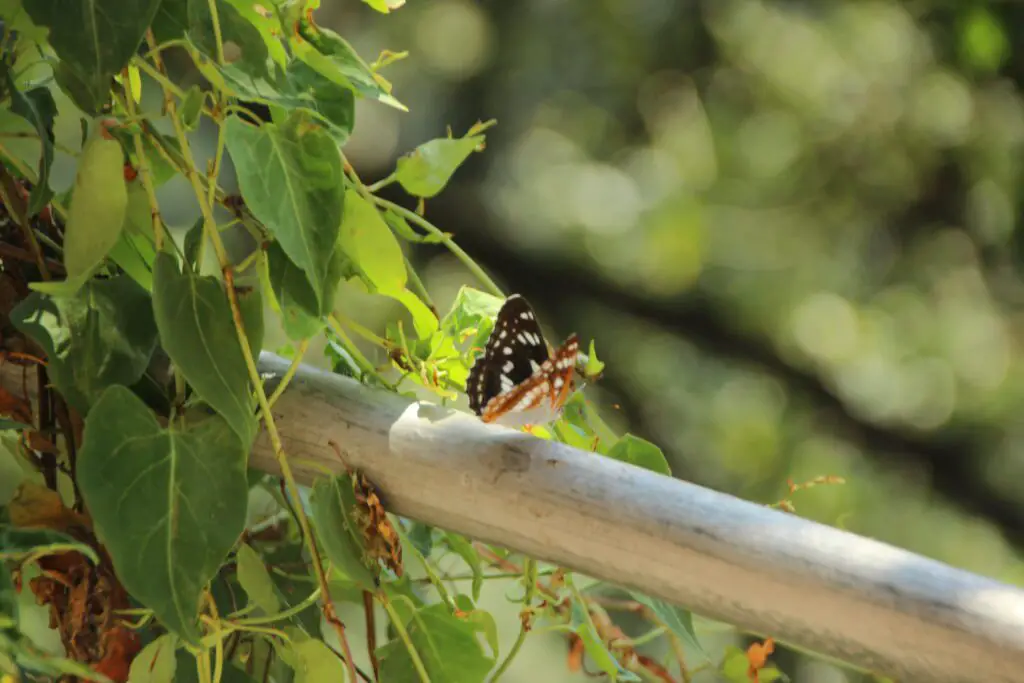
One beneficial insect that gardeners often turn to is the ladybug, also known as the lady beetle. Ladybugs are voracious predators of many garden pests, including aphids, mites, and even small caterpillars. These insects can also feed on rodent droppings, helping to reduce the presence of food sources that attract rodents in the first place. By releasing ladybugs into your garden, you can create a natural defense system against both rodents and other unwanted insects.
Another animal that can contribute to rodent control is the domesticated barn owl. These birds are excellent hunters and can consume a large number of rodents in a single night. Installing a barn owl nest box in your garden can attract these majestic creatures, providing them with a safe and suitable habitat while benefitting from their rodent-hunting prowess. As nocturnal hunters, barn owls are particularly effective at targeting rodents that are active during the night, such as mice and rats.
Properly Storing and Disposing of Food Sources to Deter Rodents
When it comes to deterring rodents from infiltrating your garden, proper storage and disposal of food sources play a crucial role. Rodents are notorious for their keen sense of smell and unwavering persistence in search of food. By implementing effective strategies for storing and disposing of food, you can create an environment that is unappealing to these unwelcome visitors.
One essential step is to store all food items in airtight containers that are rodent-proof. This prevents them from detecting the scents and gaining access to your precious supplies. Furthermore, regularly inspect your storage areas to ensure there are no potential entry points for rodents, such as holes or gaps in walls or cabinets. It is vital to fix any damage promptly to maintain the integrity of your storage space. Additionally, when disposing of leftover food or organic waste, it is advisable to use tightly sealed bins that cannot be easily accessed by rodents. Remember, eliminating any potential food sources is key to deterring rodents from making a home in your garden.
Removing Shelter and Nesting Sites to Discourage Rodents
To discourage rodents from inhabiting your garden, it is essential to remove any potential shelter and nesting sites. Rodents are opportunistic creatures that seek out places that provide safety and protection for themselves and their offspring. By eliminating these havens, you can significantly reduce the likelihood of rodent infestation.
Start by inspecting your garden for any materials that rodents may use for shelter, such as piles of wood, unused garden equipment, or debris. These can create ideal hiding spots and nesting sites for these pests. Dispose of these items properly or store them in secure containers, away from the garden.

Additionally, take a close look at your vegetation. Overgrown shrubs, dense ground cover, or tangled vines can create cozy hiding spots for rodents. Prune and trim plants regularly to discourage them from taking up residence. It is also essential to clear away any leaf litter or fallen fruits, as these can provide both food and shelter for rodents.
By removing shelter and nesting sites from your garden, you are sending a clear message to rodents that your space is not suitable for their needs. Combine this practice with other natural rodent control methods to create an environment that is unwelcome to these pests and protect your beautiful garden.
Cultivating Plants and Herbs That Repel Rodents
Cultivating plants and herbs that naturally repel rodents can be an effective and environmentally friendly way to protect your garden. Certain plants emit strong scents or contain compounds that rodents find repellent, deterring them from entering your garden and causing damage to your crops. By strategically incorporating these repellent plants into your garden, you can create a natural barrier that keeps rodents at bay.
One such plant that is known for its rodent-repellent properties is the mint family, including peppermint, spearmint, and catnip. The strong aroma of these herbs acts as a natural deterrent for rodents, making them less likely to venture into your garden. Other herbs like lavender, sage, and rosemary also possess similar repellent qualities. By planting a border of these herbs around your garden or interspersing them among your crops, you can help keep rodents away while also enjoying the enticing fragrance and culinary uses of these herbs.

In addition to herbs, certain flowers can also serve as effective rodent repellents in your garden. Marigolds, for example, have a strong scent that rodents find unpleasant, making them a valuable companion plant. Planting marigolds around the perimeter of your garden or near vulnerable crops can help deter rodents from approaching. Similarly, daffodils contain a toxic compound that rodents find unappealing, making them an excellent choice for natural pest control in your garden. By incorporating these beautiful flowers into your garden, you can not only add visual appeal but also enhance your rodent-repelling defenses.
Implementing Traps and Repellents as a Last Resort
Traps and repellents should only be used as a last resort in your garden when all other natural methods of rodent control have failed. While they can be effective in reducing the rodent population, it is important to consider the potential risks and drawbacks associated with these methods.
When it comes to traps, there are various types available, such as snap traps, glue traps, and live catch traps. Snap traps are considered one of the most effective options, as they swiftly and humanely kill rodents. However, they should be used with caution, and always placed in areas inaccessible to children and pets. Glue traps, although effective in catching rodents, can cause immense suffering and should be avoided. Live catch traps are a more humane option, allowing you to safely capture and release rodents elsewhere. It is important to note that traps must be checked regularly to prevent undue suffering of any captured animals.
Repellents, on the other hand, work by creating an unpleasant odor, taste, or sensation that deters rodents from your garden. Some common repellents include mothballs, predator urine, and peppermint oil. However, the effectiveness of repellents can vary, and they often need to be reapplied frequently to maintain their efficiency. Moreover, repellents may also affect other wildlife and beneficial organisms in your garden. Therefore, it is crucial to carefully consider the potential hazards and consequences before resorting to repellents.
While traps and repellents can be used as a last resort, it is essential to prioritize preventive measures, natural solutions, and environmentally friendly methods to achieve long-term rodent control in your garden.
Maintaining a Clean and Tidy Garden to Reduce Rodent Attraction
Maintaining a clean and tidy garden is essential for reducing the attraction of rodents. These pests are often drawn to areas with abundant food sources, hiding spots, and nesting materials. By minimizing these factors, you can create an environment that is less appealing to rodents and discourage their presence in your garden.
One important step in maintaining a clean garden is to regularly remove any fallen fruits, vegetables, or seeds. These can serve as a buffet for rodents, enticing them to visit your garden and potentially cause damage. Additionally, it is crucial to keep your compost pile properly contained and away from the main garden area. Rodents are attracted to the organic matter in compost, so ensuring it is secure and inaccessible to them is key.
In addition to addressing food sources, it is essential to eliminate any potential hiding spots or nesting materials. Clean up any piles of debris, such as leaves, branches, or mulch, as rodents can use these as shelter. Regularly mow the grass and trim vegetation near your garden to limit the amount of cover available to these pests. By creating an environment that is less favorable to rodents, you can actively reduce their presence in your garden and protect your crops from potential damage.
Seeking Professional Help for Severe Rodent Infestations
Severe rodent infestations can be overwhelming and challenging to address on your own. When traditional pest control methods fail to eliminate the problem, it may be time to consider seeking professional help. Pest control professionals have the expertise and experience to effectively handle severe rodent infestations, ensuring the safety of your garden and the well-being of your plants.
By consulting a professional, you can benefit from their in-depth knowledge of rodent behavior and biology. They can accurately identify the species infesting your garden and devise appropriate strategies to eradicate them. Moreover, they have access to specialized equipment and products that are not readily available to the general public, enabling them to tackle even the most stubborn infestations. Their methods are scientifically proven and follow established guidelines for environmentally friendly pest control, ensuring minimal impact on your garden ecosystem.
Professional pest control services also offer the advantage of ongoing support and monitoring. Upon identifying the severity of the infestation, they can create customized management plans tailored to your specific needs. They may conduct regular inspections, provide recommendations for preventive measures, and monitor the effectiveness of their treatments. This proactive approach helps to prevent future infestations and ensures the long-term success of your rodent control efforts.
Overall, seeking professional help for severe rodent infestations can be a wise decision. Their expertise, access to specialized tools, and ongoing support can help you regain control of your garden and protect it from the damaging effects of rodent activity. Remember, addressing the problem promptly and effectively can significantly reduce the risk of crop loss, property damage, and potential health hazards associated with rodents. So, if you find yourself overwhelmed by a severe infestation, don’t hesitate to call in the professionals for assistance.
How can I tell if my garden has a severe rodent infestation?
Signs of a severe rodent infestation in your garden may include extensive damage to plants, chewed-through wiring or irrigation systems, multiple burrows or nests, and a high number of rodent sightings.
Are all rodents equally harmful to my garden?
No, different rodents have varying levels of damage they can cause to your garden. For example, voles primarily feed on plant roots, while rats and mice may consume a wider range of garden plants and fruits.
Are chemical rodenticides safe to use in my garden?
Chemical rodenticides can be hazardous to the environment, other animals, and potentially to humans if not used properly. It is recommended to explore natural and environmentally friendly rodent control methods before considering the use of chemical rodenticides.
Can natural predators effectively control rodent populations in my garden?
Yes, introducing natural predators like owls, hawks, and snakes can help manage rodent populations. These predators feed on rodents and can help keep their numbers in check.
How can I properly dispose of food sources to deter rodents?
To deter rodents, it is important to store food sources in rodent-proof containers and dispose of any food waste in sealed bins. Avoid leaving food out in the open, as this can attract rodents to your garden.
Can cultivating certain plants and herbs help repel rodents?
Yes, certain plants and herbs, such as mint, lavender, and marigold, are known to repel rodents due to their strong scent. Planting these around your garden can help deter rodents from entering.
When should I consider seeking professional help for a severe rodent infestation?
Professional help should be sought for severe rodent infestations when other control methods have been ineffective or the infestation poses a significant threat to the garden or property. Professionals have the expertise and tools to address severe infestations effectively.

Kanike Sreekanth, a prolific writer at SouthElMonteHydroponics, brings a unique blend of creativity and scientific rigor to the table. With a degree in Horticulture from a prestigious institution, Kanike’s expertise spans hydroponic farming, plant biology, and agricultural sustainability. Their passion for exploring innovative cultivation methods and promoting environmental stewardship drives them to uncover new insights in the realm of hydroponics. Kanike’s writing serves as a conduit for sharing their knowledge and inspiring others to embrace alternative farming practices for a more sustainable future.

